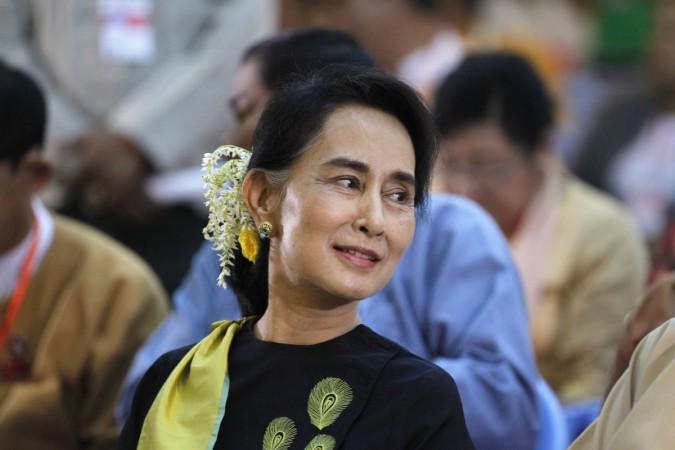
Myanmar's leader Aung San Suu Kyi told a visiting UN delegation that the country was ready to allow the return of Rohingya refugees after they complete a verification process, her office said on Tuesday.
On Monday, Suu Kyi, also the State Counsellor, met a delegation of the UN Security Council tasked with investigating the humanitarian crisis, which erupted in August last year after an offensive by the Myanmar military led to the exodus of around 700,000 Rohingya, an ethnic minority group, to neighbouring Bangladesh, reports Efe news.
"During the call, the State Counsellor underscored Myanmar's readiness to receive the verified returnees and necessary cooperation of Bangladesh to expedite the repatriation process quickly," the office said in a Facebook post.
The UN delegation, which arrived here after visiting refugee camps in Bangladesh, also met General Min Aung Hlaing, the commander-in-chief of the armed forces of Myanmar, and other government officials.
On Tuesday, the 15-member delegation - led by Peru's Ambassador to the UN Gustavo Meza-Cuadra whose country currently holds the rotating presidency of the UNSC - is set to visit Rakhine province in western Myanmar, where the Myanmar Army had unleashed the offensive following a series of attacks on government posts by Rohingya rebels.
Last December, Doctors Without Borders had said that around 6,700 Rohingyas were killed in the military campaign, which the UN High Commissioner for Human Rights and other countries had described as ethnic cleansing.
The UN delegation also visited refugee camps in Bangladesh situated at the border with Myanmar and talked to the refugees to gauge the magnitude of the humanitarian crisis.
In Myanmar, they are set to hear the official version of the events and visit some Rohingya villages, which were destroyed in the offensive.
In April, a Myanmar court sentenced seven soldiers to 10-years of rigorous imprisonment for extra-judicial killing of 10 Rohingya refugees during the military campaign.
Myanmar authorities, who signed an agreement with Bangladesh in November to repatriate the refugees, have denied allegations of human rights abuses in the military offensive and justified it as a legitimate response to terror.
Myanmar does not recognise the Rohingya as citizens, claiming they are illegal immigrants from Bangladesh, which has led to continued discrimination against the community, including restrictions on their freedom of movement.









